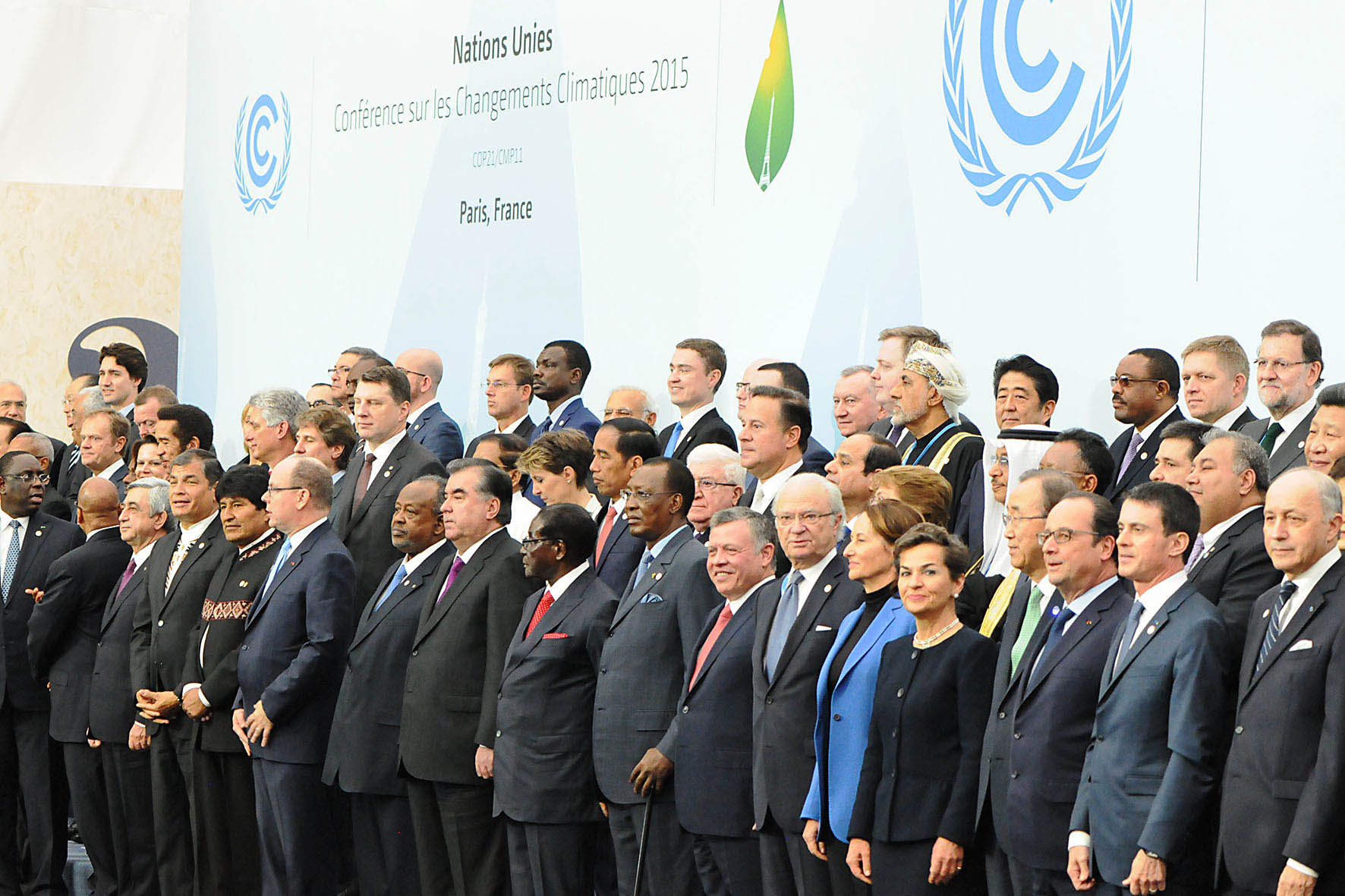On the face of it, Donald Trump’s decision to withdraw the United States from the Paris Agreement – perhaps the most momentous climate accord in history – owed as much to business as politics. The US President’s protectionist stance means that the cost of retrofitting and enforcing emission targets was not worth it, even if it offered savings in the long term.
The problem for the President is that as well as this plays with his core demographic, there is more at stake than America falling behind in climate responsibility. New industries are developing rapidly around green technology, something European businesses have cottoned onto. Silicon Valley may cover some of the creative deficit when it comes to keeping the US competitive, but the world’s wealthiest nation could miss out on a major industrial revolution.

Image courtesy of the UNFCCC, via Flickr
The business of greentech
European figureheads like Angela Merkel and Emmanuel Macron have responded bluntly to Trump’s decision. Macron was particularly bold, making a pointed speech that called for France and its allies to ‘Make the planet great again’. Along with the pair’s firm handshake when they met on Trump’s European tour, this approach has played well with the French public.
In most cases the defence of the Paris agreement speaks to the genuine challenges posed by climate change, and an honest attempt to mitigate the future damage it could cause across the globe. However, the sudden change of rhetoric from nations such as China and Russia also hints at another side to the story: that greentech is about to be big business.
For China, investment in renewable energy and other green technologies is the perfect fillip to its growing global presence. The government has pledged a colossal £292 billion of investment in global renewable power projects over the next three years, and they show every sign of delivering. This acts as both a tremendous PR move and an effort to get a leg up on the competition. Contributing this amount to so many countries, particularly developing nations, could be advantageous both to the government and the country’s future business interests.
In Europe, what can’t be achieved through direct investment is being achieved through policy. A number of nations have now independently laid out timelines for phasing out petrol and diesel automobiles. France plans to end sales by 2040, while the Netherlands has touted an even more optimistic date of 2025. Even Germany, where more petrol and diesel cars are produced than anywhere else, is apparently keen on a 2030 deadline.
Clean companies
On the face of it this would seem self-destructive. As mentioned, Europe – and particularly France and Germany – has an enormous output of petrol and diesel vehicles. But what’s important, and perhaps even more surprising, is that manufacturers are following suit. Volvo recently announced that they would only sell electric or hybrid cars by 2025, while French company Renault-Nissan has committed significant resources to electric vehicles, claiming around 15% of the nascent European market.
Evidence of this sea change exists in the technology sector, too. While Silicon Valley and the broader United States still dominate on the global stage, the EU is making major inroads. Paris’ new Station F startup hub is only the latest expansion in a world-leading tech landscape, consisting of a dozen designated tech cities, and a record Consumer Electronics Show delegation.
State investment bank BpiFrance paid out almost 200 million euros last year, and has earmarked another 400 million. It is quickly catching up to the UK, currently Europe’s leading destination for startups, with the economical and diverse Berlin scene close behind. This concentration of talent is important. Germany’s car industry has long been worried about its competitiveness in software, with only a handful of German software companies in the top 100 worldwide.
In French President Emmanuel Macron – a former champion of the La French Tech programme – they may have a significant advocate and ally. France is a particularly strong producer of STEM graduates, and the two countries could prosper with alliances between their industries, startup sectors and universities. Germany’s car industry meanwhile will be keen to catch up with France, where Peugeot, Citroën and Renault currently create the world’s 1st, 2nd and 3rd lowest emission cars.
Power shift
The greatest signal of this shift in business opinion is the energy industry itself. Oil, coal and gas giants, which for decades relied on profits from coal and oil (and reputedly noted the effects of fossil fuels before anyone else), have begun to divest their interests into renewables. Shell, ExxonMobil and Saudi Aramco have all made substantial investments in clean energy, battery technology and ‘carbon capture and storage (CCS)’ in the last few years; Shell have created an entirely new, $200 million division for acquisitions and investments, while French firm Total has invested some 2.4 billion euros in clean energy acquisitions, promising a further £500m each year.
With companies like Ford keeping car making jobs in America, President Trump may be convinced that the investment will keep on coming. But ignoring renewables stands not only to dissuade big businesses and stifle innovation; it will impact small businesses too. This is not just an issue for tech startups, who may find it difficult to find business in partisan states.
Renewables in many instances now mean cheaper energy, thanks to the ‘always on’ nature of wind and hydropower.
This is not to mention the public health benefits, another key driver in Europe and China, where pollution has become a more public issue. Cities including Barcelona and Paris have already implemented diesel bans due to pollution warnings from the EU, with London being urged to follow suit. The savings from reduced rates of cancer and respiratory problems would alleviate the burden on all healthcare system, including America’s – perhaps a better alternative to shelving the Affordable Care Act.
For all the political jousting around climate change, renewable energy has developed to the point where it is not only viable, but desirable. Europe has joined with both businesses and citizens in recognising this potential, and setting out a roadmap to better futures for both industry and the environment. It remains to be seen if America can stay competitive in spite of its administration.
Article Contributed by Katya Puyraud:
Former journalist Katya Puyraud is the co-owner of Euro Start Entreprises, specialising in company formation in France and the rest of the EU. Since 2007 Euro Start Entreprises has helped budding digital nomads, entrepreneurs and expanding SMEs to open their companies in over 30 countries worldwide.





Leave a Comment